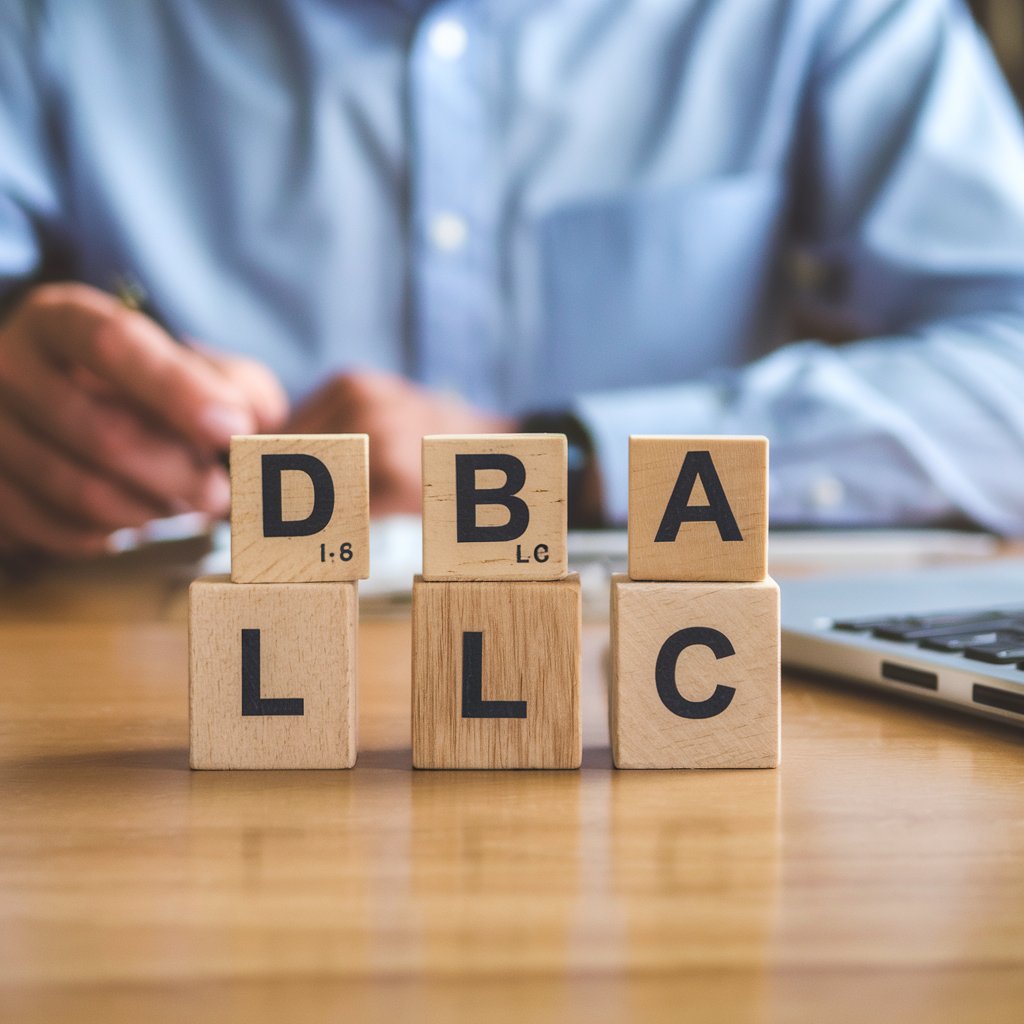When starting a business, one of the first decisions you’ll face is how to legally structure it. Two common options are DBA (Doing Business As) and LLC (Limited Liability Company). Choosing between a DBA and an LLC depends on various factors, including the level of personal liability protection, tax implications, and your long-term goals for […]

What is Better, a DBA or LLC?
Blueprint
When starting a business, one of the first decisions you’ll face is how to legally structure it. Two common options are DBA (Doing Business As) and LLC (Limited Liability Company). Choosing between a DBA and an LLC depends on various factors, including the level of personal liability protection, tax implications, and your long-term goals for the business. In this guide, we will break down the key differences between a DBA and an LLC, helping you decide which structure is best suited for your business.
What is a DBA?
A DBA (Doing Business As) is a trade name or fictitious business name used by a sole proprietor or partnership to operate under a different name than the owner’s legal name. It is essentially a nickname for your business, allowing you to brand your company without creating a separate legal entity.
Key Features of a DBA:
- No Legal Separation: A DBA does not create a separate legal entity. The business owner remains personally responsible for debts, liabilities, and legal obligations. For example, if your business is sued, your assets can be at risk.
- Easy and Affordable to Set Up: Registering a DBA is typically simple and inexpensive. You file with your local government, often through the county clerk’s office, and pay a small fee. There are fewer formalities and paperwork compared to an LLC.
- No Separate Tax Filing: A DBA does not require separate tax filings. The business income is reported on the owner’s personal tax return, which simplifies tax reporting.
- Brand Flexibility: A DBA allows you to operate under a different name without changing the structure of your business. This can be useful if you want to market your products or services differently while keeping the business under one umbrella.
Pros of a DBA:
- Cost-Effective: DBAs are typically cheaper to register.
- Simplicity: There are fewer regulatory requirements and ongoing obligations.
- Name Flexibility: You can create multiple DBAs for different product lines or markets.
Cons of a DBA:
- No Liability Protection: A DBA does not protect your personal assets.
- Limited Credibility: Some clients or partners may view a DBA as less professional than an LLC.
What is an LLC?
An LLC (Limited Liability Company) is a legal business entity that provides personal liability protection to its owners (referred to as members). Unlike a DBA, an LLC is considered a separate entity from its owners, meaning that the company’s debts and legal obligations are the company’s responsibility, not the owners’.
Key Features of an LLC:
- Limited Liability Protection: One of the biggest advantages of an LLC is that it shields your personal assets from the business’s debts and liabilities. If your business faces a lawsuit or financial troubles, your personal property, such as your home or savings, is generally protected.
- Flexible Tax Options: An LLC offers flexibility when it comes to taxation. By default, an LLC is treated as a “pass-through” entity for tax purposes, meaning that the profits or losses pass through to the members’ personal tax returns. However, LLCs can also choose to be taxed as an S-corporation or C-corporation, depending on what works best for the business.
- Professional Credibility: Having “LLC” in your business name can enhance your credibility with customers, partners, and investors. It signals that your business is more established and legally structured.
- Fewer Formalities: Compared to corporations, LLCs have fewer ongoing requirements, such as annual meetings or complex record-keeping. This makes it a relatively simple option for small businesses.
Pros of an LLC:
- Liability Protection: Owners’ personal assets are protected from business liabilities.
- Tax Flexibility: LLCs can choose how they want to be taxed.
- Credibility: An LLC adds professionalism to your business.
- Ownership Flexibility: LLCs can have one or multiple members.
Cons of an LLC:
- Higher Costs: It’s generally more expensive to form and maintain an LLC.
- More Paperwork: LLCs have more filing requirements and regulations than DBAs.
Key Differences Between a DBA and LLC
Now that we have a clearer understanding of what DBAs and LLCs are, let’s compare the two on critical factors that can impact your decision.
1. Personal Liability Protection
- DBA: A DBA offers no personal liability protection. If your business faces legal action, your personal assets, like your house and car, could be at risk.
- LLC: An LLC protects its owners by creating a separate legal entity. This means your personal assets are protected from lawsuits or debts incurred by the business. If protection is important to you, an LLC is generally the better choice.
2. Cost and Complexity
- DBA: Registering a DBA is typically inexpensive and straightforward. There are fewer formalities, and you don’t need to file separate tax returns for your business.
- LLC: Setting up an LLC is more costly and involves more paperwork. You need to file articles of organization with your state and pay filing fees, which can range from $50 to several hundred dollars. Additionally, some states require annual reports and fees.
3. Taxes
- DBA: With a DBA, your business income is reported on your personal tax return. There’s no need to file separate taxes for the business itself.
- LLC: LLCs have flexible tax options. By default, an LLC is a pass-through entity, meaning that the business income is passed through to the owners, who report it on their personal tax returns. However, LLCs can also elect to be taxed as a corporation, which may offer tax advantages depending on the business.
4. Credibility
- DBA: While a DBA allows you to operate under a different name, it doesn’t add any legal separation or significant credibility to your business.
- LLC: Including “LLC” in your business name often adds a layer of professionalism. Customers, investors, and partners may take your business more seriously if it’s structured as an LLC rather than a sole proprietorship with a DBA.
5. Management and Structure
- DBA: A DBA doesn’t change your business’s structure. If you’re a sole proprietor or part of a partnership, your business will continue to operate in that capacity.
- LLC: An LLC provides more flexibility in how the business is managed. You can choose to have the LLC managed by its members (owners) or appoint a separate manager. This allows for more complex ownership structures, which can be beneficial as your business grows.
6. Ownership and Control
- DBA: With a DBA, ownership and control are straightforward. The business owner is fully responsible for all decisions, liabilities, and profits.
- LLC: An LLC can have one or multiple members, offering more flexibility in ownership. Members can share management responsibilities or appoint managers to handle day-to-day operations.
Which is Better: DBA or LLC?
When deciding between a DBA and LLC, it ultimately comes down to your business’s needs, growth potential, and risk tolerance.
Choose a DBA If:
- You’re starting a small business with low legal and financial risks.
- You’re not concerned about liability protection.
- You want to operate under a different business name without creating a separate entity.
- You’re looking for a simple and affordable way to brand your business.
Choose an LLC If:
- You want to protect your personal assets from business liabilities.
- You need flexibility in how your business is taxed.
- You want to add credibility to your business.
- You plan to grow your business or seek outside investors.
An LLC offers far more protection and flexibility than a DBA, but it also comes with additional costs and responsibilities. If you’re just starting out and don’t anticipate much risk, a DBA could be a good first step. However, if you want to build a more robust business with legal and tax advantages, forming an LLC might be the better long-term solution.
Conclusion
Choosing between a DBA and an LLC is a crucial decision that impacts your business’s legal structure, financial obligations, and credibility. While a DBA is simpler and more cost-effective, it offers no liability protection. On the other hand, an LLC provides personal liability protection, flexible tax options, and added credibility, but requires more effort and expense to maintain.
In summary, a DBA is suitable for small, low-risk businesses that need an affordable way to brand themselves, while an LLC is a better choice for those seeking legal protection, tax flexibility, and long-term growth. Evaluate your business’s needs, risk exposure, and goals before making a decision.




